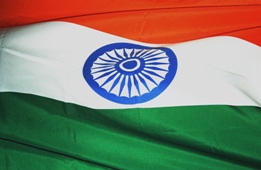 Commerce secretary Rahul Khullar is reaching Islamabad on Tuesday for talks with Pakistani officials amidst Indian industry's growing interest to step up trade with the neighbouring country.
Commerce secretary Rahul Khullar is reaching Islamabad on Tuesday for talks with Pakistani officials amidst Indian industry's growing interest to step up trade with the neighbouring country.
While the Indian industry says the prospects for improving bilateral economic relations 'seem extraordinary', head of Indian Institute of Foreign Trade has recommended an 'incremental approach' for improving the mutual ties.
"Business community of India is quite keen to do business with Pakistan. The mood of the Indian industry is quite upbeat and we expect positive movements in the forthcoming meeting," Federation of Indian Chambers of Commerce and Industry said in New Delhi.
According to Assocham, "the prospects for improving bilateral economic relations seem extraordinary. . .Pakistan will benefit by improving trade and economic relations with a fast growing country like India".
IIFT director K T Chacko said inspite of the obstacles, it should be possible to make progress on the trade front between the two countries.
He suggested a gradual approach for sustainable ties. "An incremental approach would be more practical than a quantum jump. Such a step would also build confidence...," Chacko said.
Khullar and Pakistan commerce secretary Zafar Mehmood are likely
India may also express willingness to export petrol and diesel to Pakistan if that country lifted its ban, a senior official said.
Pakistan imports 4-5 million tonne of diesel from Kuwait every year.
Trade between India and Pakistan has remained small at about $2 billion.
"Lack of direct trade has resulted in surge in informal trade, including third country," Ficci said.
India allows import from Pakistan of all but a few items in the negative list.
On the contrary, Pakistan disallows exports from India in all but selected items in the positive list, thus, restricting bilateral commerce.
Ficci said Pakistan should follow the Indian model and open trade. As per Pakistan's positive list, India can export only 1,938 items.
Pakistan currently allows India to export items like meat, edible oil, cereals, tobacco, chemicals, fertilisers, leather, cotton, silk, coffee, tea and oilseeds.










 © 2025
© 2025